Meet Luther, Thailand’s only guide dog, and his brave owner fighting for understanding
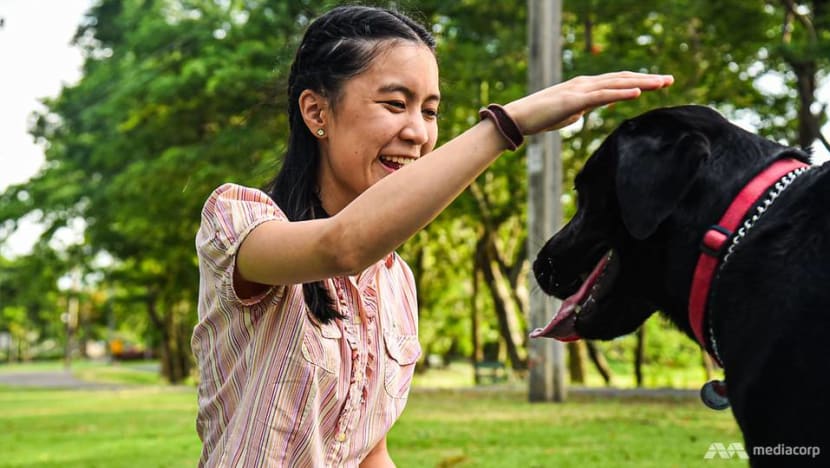
Sai and Luther have developed a strong bond in the two years they have been together. (Photo: Jack Board)
BANGKOK: Luther lies patiently and quietly, head resting on the lap of his young owner. The 4-year-old black labrador retriever is wearing his guide dog harness - even though he is idle, he remains on duty.
Deep down though, and despite his years of specialised training, Luther is still a dog. All around him fellow canines are enjoying a walk in the park. His head turns with interest, his ears prick and he sniffs at the breeze with curiosity.
“He’s going like, ‘I’m a guide dog, I’m a guide dog, I’m a guide dog, I’m not supposed to do that’. He’s still certainly a dog,” laughs Kirin Techawongtham, who commonly goes by the name Sai.
Luther and Sai are an intrinsically connected duo. Sai is blind and for the past two years, she and Luther have undertaken a rare and special journey together, as dependents, travellers and friends.
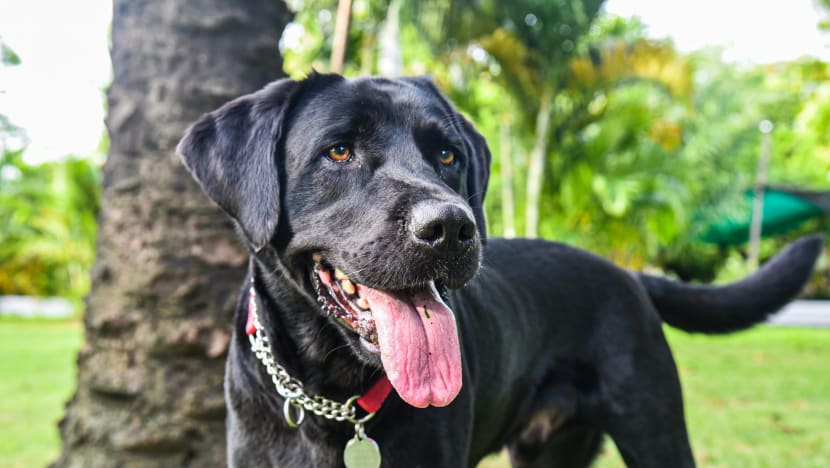
A Facebook page starring the pair, set up in June, has made the adventure a viral one. In less than two months, the page has attracted more than 100,000 followers. In a country with a chequered relationship with disability, Sai and Luther’s story is inspiring some tough and long awaited conversations about acceptance, accessibility and understanding in Thailand.
Sai was just 13 years old and on a family vacation when her eyesight began to fail. It was sudden. And it was unexpected. Something every child takes for granted began to fade.
“From day one to day five my sight got worse really quickly to the point I was walking into bushes and kicking stuff,” she said. “We got back and found out there’s quite a big tumour in my brain that’s pressing against the optic nerves, so Thursday I was admitted and Friday I had brain surgery to remove it.”
With her sight slowly returning, Sai was released from the hospital days later. “But the next day I woke up and I couldn’t see at all and we still aren’t sure why that is.”
Young and optimistic, Sai said she did not grasp the enormity of the change that was coming. She still believed her eyesight would return, sometime, somehow. Nine years on, it has not.
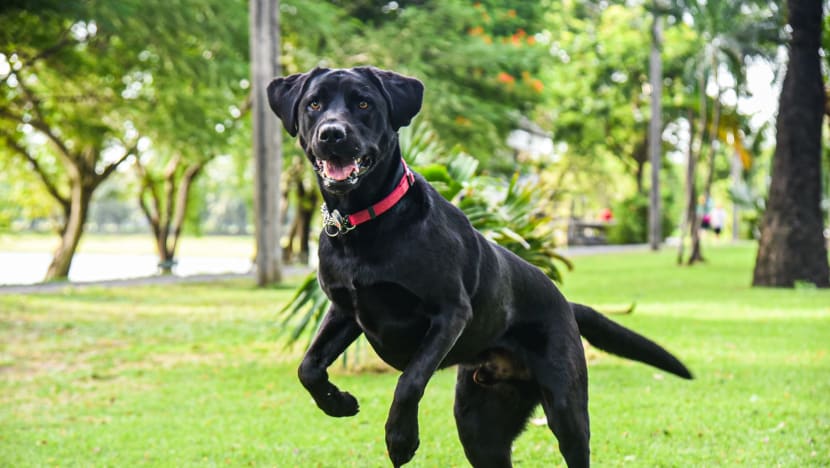
Confronting that new reality and the physical and mental challenges that inevitably occur has not been easy for Sai, who is now 22. But an inner determination to be strong - and with Luther now by her side - she has achieved plenty, including recently graduating with a 4.0 GPA in Psychology at Hendrix College in the United States.
“It certainly goes up and down, especially after that first year. Most of the time I’m happy but some days I’m like ‘oh my gosh this is so hard’,” she said.
“It’s still true today, most of the time I’m still ok, but sometimes when I face some obstacle that I know would have been so easy if I could see...I usually just let myself get mad or cry my eyes out and then the next day I just get up and do what I need to do to move on or solve that problem.”
It was in the US that Sai and Luther first met and joined forces. He was trained by a guide dog institution in New York. Sai had never owned a dog before and had only been convinced to apply for a guide dog after realising the benefits other students on her university campus derived from having emotional support dogs with them. She was going through bouts of depression and soon found purpose and comfort in Luther.
“He certainly helps with my mental health a lot because he forces me to go outside even if I don’t feel like it, or even when I don’t want to go outside, I still have a company, which really helps.
“A lot more people come up to talk to me. Sometimes when you’re disabled or blind people don’t feel comfortable coming up to talk to you because they don’t know how to interact with you. A lot of people when they see a dog they’re like oohhh,” she laughed.
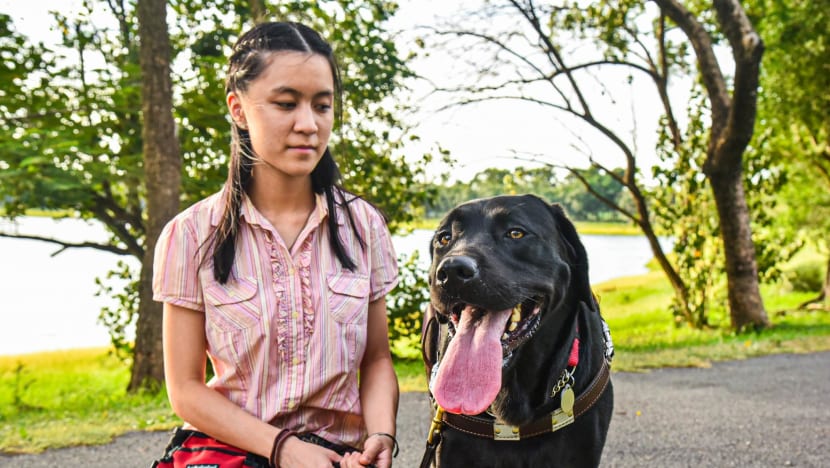
Bringing Luther back to Thailand would bring new hurdles. Since their journey home mid year, faced with obstacle after obstacle, she has become an unlikely warrior for social change.
Thailand has had a couple of guide dogs in its history, but right now, Luther is the only one. Despite laws that are meant to guarantee their accessibility rights, the rarity of guide dogs means awareness among the community is low about what Luther is trained to do and where he should be allowed to go.
Sai says she has trouble going anywhere with her companion in Bangkok. “Mostly inside the buildings. Usually it’s like malls, restaurants, hotels that are indoors and even now parks that don’t allow pets. They won’t allow me,” she said.
Sai and her family - with Luther in tow - have been relentless in their campaigning as their social media posts exploded in popularity. They have been featured in numerous local television interviews and had the opportunity to meet Bangkok governor Pol Gen Aswin Kwanmuang to raise their concerns and suggestions to make travelling around the city easier.
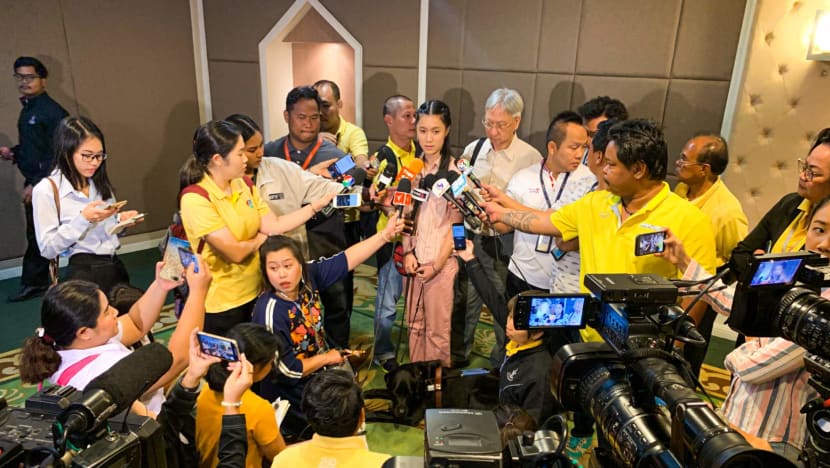
While the meeting was swift and swamped by news cameras, the governor confirmed that any parks under the mandate of the Bangkok Metropolitan Administration would be made accessible for Sai and Luther. And he flagged other urban improvements, although without committing to any concrete immediate plans.
“We received suggestions (regarding uneven walkways) and we will improve them so that rights to be human are equal,” he said.
“With a guide dog certificate, I believe that Sai can take her guide dog to department stores or government offices. We need to give equal treatment to people.”
Sai has had some small victories, including being welcomed to use Bangkok’s skytrain network with her dog, and encouraged to visit the shopping complexes of one of the country’s biggest conglomerates Central Group.
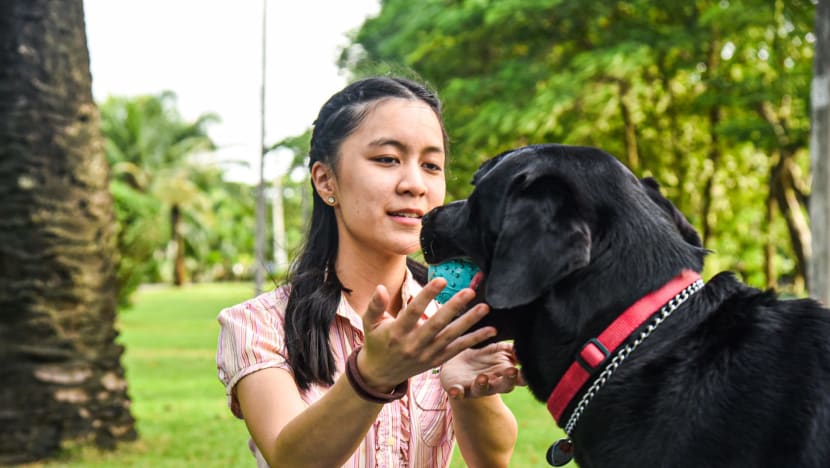
For her mother Tik Otaganonta, the progress is welcome but slow. “We’ve got lots of support from people all over Thailand and Thais abroad. It’s mind blowing the support we got. But big organisations that we are hoping to get a response from, we’ve got fewer than fingers on my hand,” she said.
“It’s not just for her and the dog, it’s for all the disabled people in Thailand and, in a way, if people are more inclusive then Thai society will be better as a whole. And it will trickle to everything they do, just starting from this, accepting Sai and Luther. It’s not just a cute dog and then they’re done with it. “
Sai smiles when asked why she thinks her story has captured the imaginations of Thais, who have inundated her posts overwhelmingly with messages of love and encouragement - she knows her black-furred buddy is especially adorable.
But she also feels that Thais have shown they are open to understanding what guide dogs can do and more broadly, about the plight of people with a disability. She does not want to speak for everyone - her journey and experience is an individual one - but is appreciative of the platform she now has.
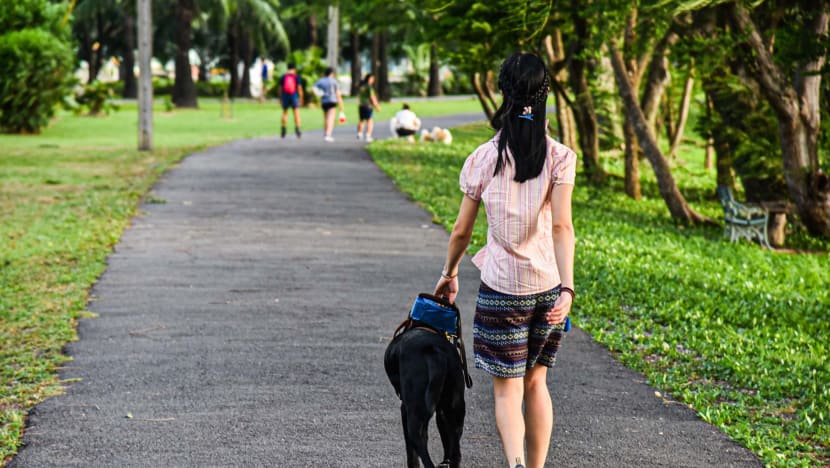
“I feel like my cause is bigger than just raising awareness about guide dogs and getting access into buildings with my guide dog. I feel that Thai people think that blind or disabled people are kind of dependent, they can’t live by themselves and I want that to change,” she said.
“I really want people to come in with the thinking that disabled people can live a very independent life and they can support themselves as long as you give them the opportunity to and give them the right support.”
As she and Luther stroll confidently down a footpath, breeze in their hair and fur respectively from an adjoining lake, independent is one of the first words that comes to mind.
Additional reporting by Ryn Jirenuwat.














